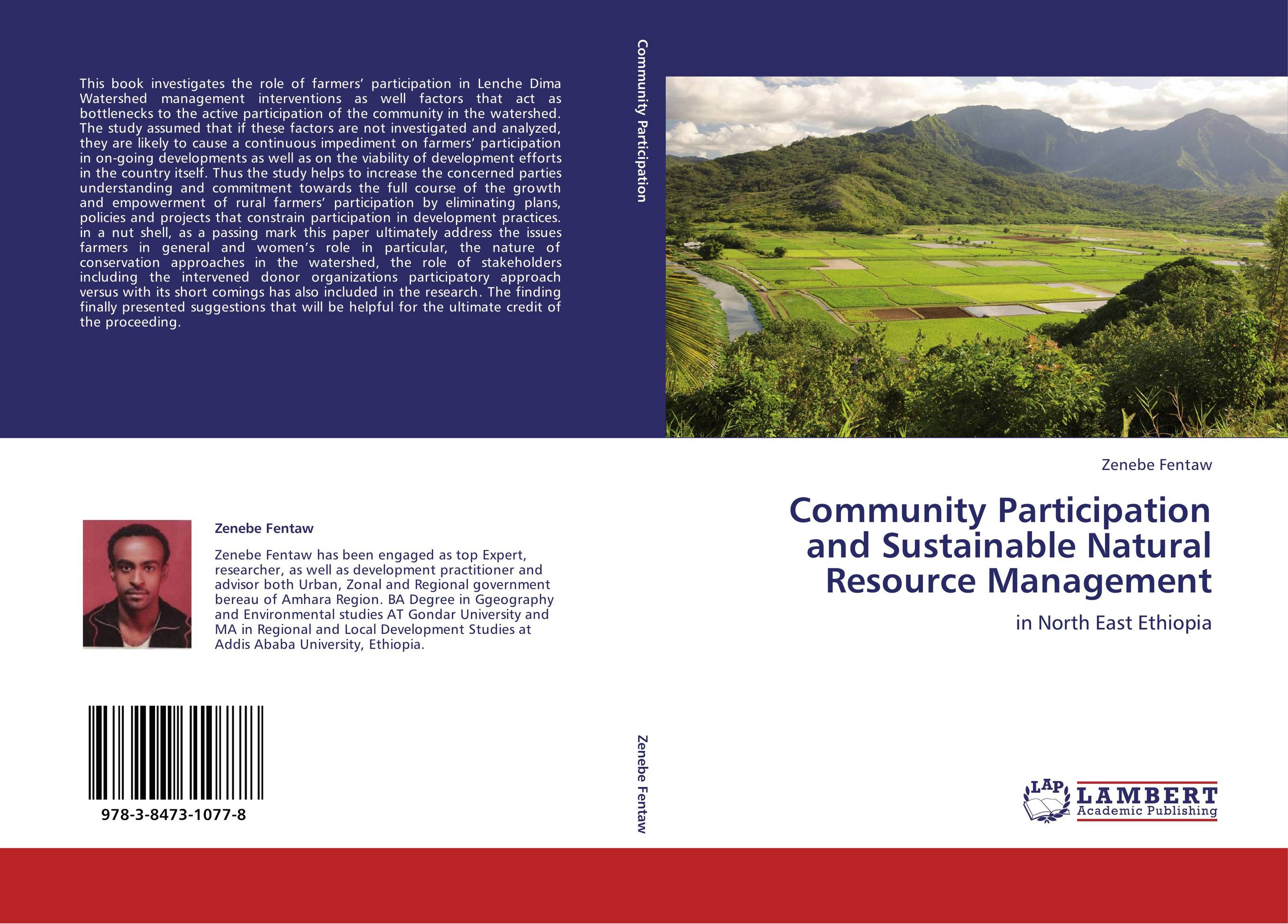| Поиск по каталогу |
|
(строгое соответствие)
|
- Профессиональная
- Научно-популярная
- Художественная
- Публицистика
- Детская
- Искусство
- Хобби, семья, дом
- Спорт
- Путеводители
- Блокноты, тетради, открытки
Community Participation and Sustainable Natural Resource Management. In North East Ethiopia

В наличии
| Местонахождение: Алматы | Состояние экземпляра: новый |

Бумажная
версия
версия
Автор: Zenebe Fentaw
ISBN: 9783847310778
Год издания: 2012
Формат книги: 60×90/16 (145×215 мм)
Количество страниц: 176
Издательство: LAP LAMBERT Academic Publishing
Цена: 43950 тг
Положить в корзину
| Способы доставки в город Алматы * комплектация (срок до отгрузки) не более 2 рабочих дней |
| Самовывоз из города Алматы (пункты самовывоза партнёра CDEK) |
| Курьерская доставка CDEK из города Москва |
| Доставка Почтой России из города Москва |
Аннотация: This book investigates the role of farmers’ participation in Lenche Dima Watershed management interventions as well factors that act as bottlenecks to the active participation of the community in the watershed. The study assumed that if these factors are not investigated and analyzed, they are likely to cause a continuous impediment on farmers’ participation in on-going developments as well as on the viability of development efforts in the country itself. Thus the study helps to increase the concerned parties understanding and commitment towards the full course of the growth and empowerment of rural farmers’ participation by eliminating plans, policies and projects that constrain participation in development practices. in a nut shell, as a passing mark this paper ultimately address the issues farmers in general and women’s role in particular, the nature of conservation approaches in the watershed, the role of stakeholders including the intervened donor organizations participatory approach versus with its short comings has also included in the research. The finding finally presented suggestions that will be helpful for the ultimate credit of the proceeding.
Ключевые слова: watershed, Community, Participation, natural resource management, Gender, Watershed Management, Community based



